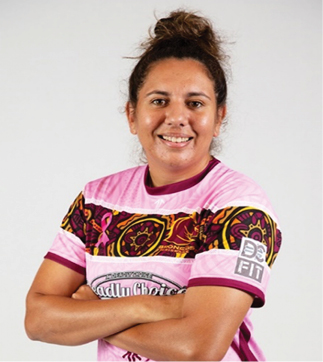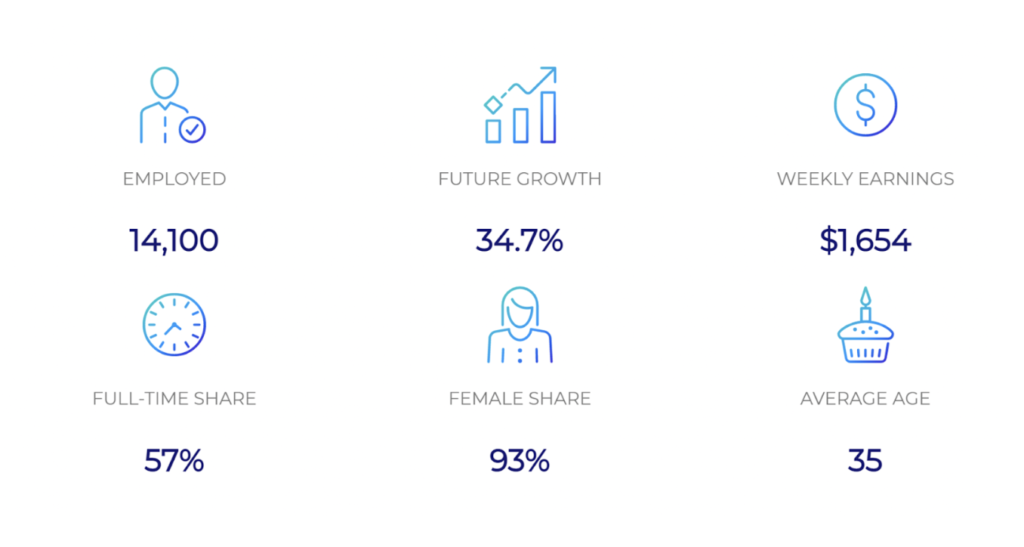Indigenous Employment Australia Yarns with…

Ever thought about a career as a Speech Pathologist? We yarn with Tallisha Harden, a proud Torres Strait Islander woman about her career.
Tell us about you and your mob?Tell us about your career?
I’ve been a Speech Pathologist with the Institute for Urban Indigenous Health for the past 6 years. My role continues to evolve, and at the moment I work across multiple community-controlled health services in Southeast Queensland, helping young people and our elders achieve their communication goals. Through my work as a Speech Pathologist, I’ve also been able to consult on research projects with universities and tutor/mentor Speech Pathology students.
What pathway did you take to become a Speech Pathologist?
I completed year 11 and 12 over three years, instead of two years, so I could focus on my study, as well as my sport. I was accepted into the Bachelor of Speech Pathology at the University of Queensland. I had a gap year halfway through my study, so I ended up completing my four year degree in five years, graduating in November 2016.
What skills do you need to succeed in your role?
Having the ability to build connections and maintain relationships is a part of my role. This is achieved through:
Being authentic and genuine during interactions with clients and other staff
Taking time to listen and communicate effectively, particularly when building relationships with clients
Following through on commitments.
What is the deadliest thing about your career?
Meeting mob of all different ages and backgrounds who have different stories, perspectives and journeys.
What career advice would you give your mob?
- Follow and trust your own timeline, don’t compare yourself to others
- Get comfortable with being uncomfortable
- It’s okay to say ‘No’ to things in your personal and professional life. I went through a recent period of burnout after overloading myself and saying ‘Yes’ to too many things!
Want to know more about Speech Pathology?
A Speech Pathologist provides diagnostic assessment, treatment, rehabilitative services and management of human hearing defects, communication and swallowing impairments.
Tasks carried out as a Speech Pathologist
- Administering and interpreting a wide range of audiometric tests to determine hearing efficiency and locate sites of detected hearing problems
- Interpreting audiometric test results alongside other medical, social and behavioural diagnostic data
- Evaluating total response pattern and acoustic tests to distinguish between organic and non-organic hearing loss
- Planning, directing and participating in counselling, speech reading and other rehabilitation programs
- Prescribing appropriate hearing aids and instructing patients in their use
- Administering tests and observing patients to determine nature and extent of disorders
- Planning and conducting programs of remedial exercise to correct disorders such as stuttering and abnormal articulation
- Administering individual and group group therapy for rehabilitation of patients with communication problems caused by defective hearing, cerebral palsy, surgery and injury
- Advising on treatment for children with difficulties in learning to speak
- Counselling and guiding language-handicapped individuals, their families, teachers and employers
What type of education, training and skills are required?
Bachelor or Masters Degree in Speech-Language Pathology to work as a Speech Pathologist.
Areas of learning and subjects which are helpful.
You may be interested in Speech Pathology if you enjoyed these learning areas at school:
- Biology
- English
- Health
- Languages
- Music
Occupation snapshot of Speech Pathology.

Leave a Reply
You must be logged in to post a comment.
